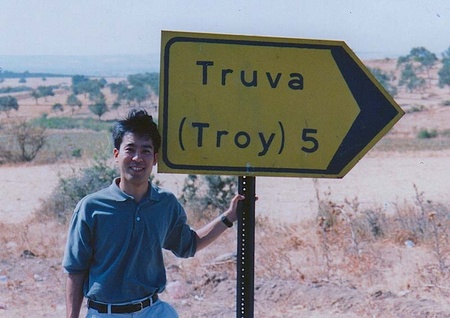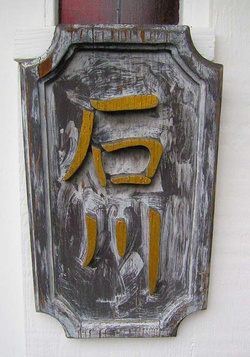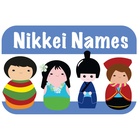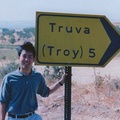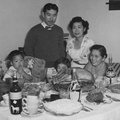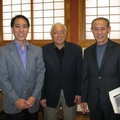What is in a name? Is your name unique? Have you developed your identity around your name? Were you named after a relative, a movie star, or a song title…? Do you happen to have a surname that is also shared by a famous person? These questions and more usually come to mind when thinking about your name.
As most Nikkei, you probably have encountered multiple mispronunciations of your surname, myself included. I can relate to the “butchering” of the mispronunciation of my last name, Ishikawa. The worst examples come over the telephone by telemarketers. If they can’t pronounce my last name, I figure I’m not the person they are trying to contact. Also I remember my 8th-grade history teacher who never pronounced my last name. I had figured out early on that for anybody with a last name that was difficult for him to pronounce, he always just called their first name.
I also sometimes receive mail addressed with an added middle initial, “T.” How marketers conceived this is complete fiction. Perhaps they bought my name from a list sold by “misdirect mails R us.” I wonder what the “T” stands for? Maybe the marketers know or could the marketers know something I don’t?
Growing up, other Nikkei have said that “Ishikawa” is a common Japanese surname, similar to “Sato” and “Suzuki” or the U.S. equivalents of “Smith” and “Jones” so I always figured that my name was listed as number 3, but discovered that it was ranked number 32. (Source: japanese-names.org/japanese-last-names.php). I have an American friend and her married name is Hayashi, which comes ten places before Ishikawa, though she never teased me about it.
On one visit to Turkey, I was finally able to visit the famous historic mythic city named “Troy,” as in the Greek mythology, “Helen of Troy” and Homer’s epic The Iliad. The city of Troy is located near the Dardanelles Straits at the entrance of the Sea of Marmara. Being driven to the city, I noticed fields of cotton growing almost right to the border. I was a little surprised that agriculture would be so close by, thinking that the city deserved due respect. While touring the city of Troy, I learned excavations have revealed, so far, there are ten cities of Troy all built layer-upon-layer on top of each other.
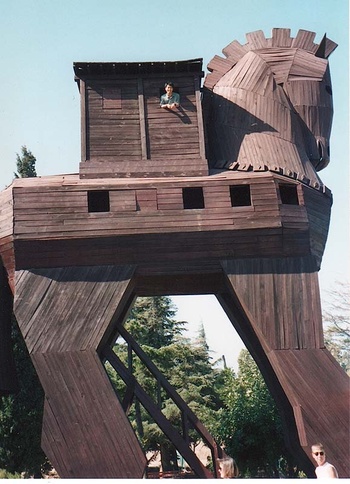
For this photo taken of me inside the wooden Trojan horse, I had to “bat” down the German tourists who were also clamoring to reach the window. It was hot inside there!
And then there are the “headaches” of having a surname connected with a “celebrity,” such as Japanese golf phenom Ryo Ishikawa and Hapa Yonsei (half Japanese fourth-generation American) baseball player Travis Ishikawa. Fortunately, I don’t suffer from this problem and people haven’t asked if I am related to either one.
As far as I know, there are no relatives with my same last name living in the U.S. My dad was the only male in his family, though a sister’s husband was “adopted” by my paternal grandfather to continue the family line in Japan. This is known as “Yoshi-engumi.” Growing up, my dad never explained this story clearly, since he never referred to this event as an “adoption.” He used to tell us that his brother-in-law took our last name. He also said that this was a common cultural custom in Japan for non-first born men who married into a family to adopt the wife’s family name, if there was no male available to continue the line. Not to forget another Japanese cultural custom where upon siblings who do not procreate a male heir to adopt another sibling’s male child, again if they had more than one son.
Living in the U.S., I am still fascinated by meeting other people with my same surname, since this happens so rarely. (All the while I understand there is probably no chance that we are related.) Within my family, only a distant cousin through marriage has the same surname. She spoke about growing up in Japan and being teased because of the infamous 16th-century rogue character Ishikawa Goemon. He was often compared to Robin Hood, stealing from the rich and giving to the poor, as explained by my dad. Fortunately, I never encountered this razzing because nobody called me “Ishikawa Goemon.” Recently, I read that this was his pseudonym.
Not surprising, U.S. servicemen who were stationed in Okinawa have familiarity with pronouncing or spelling my surname correctly because of Ishikawa beach. There is also an Ishikawa prefecture located along the “Ura-Nihon” or back-side of Japan facing the Sea of Japan. Though nobody has told me this is how they knew how to pronounce or spell my last name, yet.
My dad always explained to non-Japanese that the meaning of our surname is “stone river.” He also taught many how to pronounce our last name. He always said that it was spelled phonetically (at least to a Japanese) and contained four syllables. I remember I needed to write down my last name on a 3" x 5" index card for my university graduation ceremony. I wrote it down as “E-she-cow-a.” Back then, I had used a hybrid Japanese and American pronunciation of my surname. It was not until I lived in Japan that I insisted to myself that I pronounce my surname as it really should be pronounced, “E-she-ka-wa.” Most Americans still mispronounce my surname as “Ish-a-ka-wa” and spell it with three “a's.” When I’m sarcastic, I tell people they pronounced my surname, close enough.
© 2014 Troy Ishikawa


